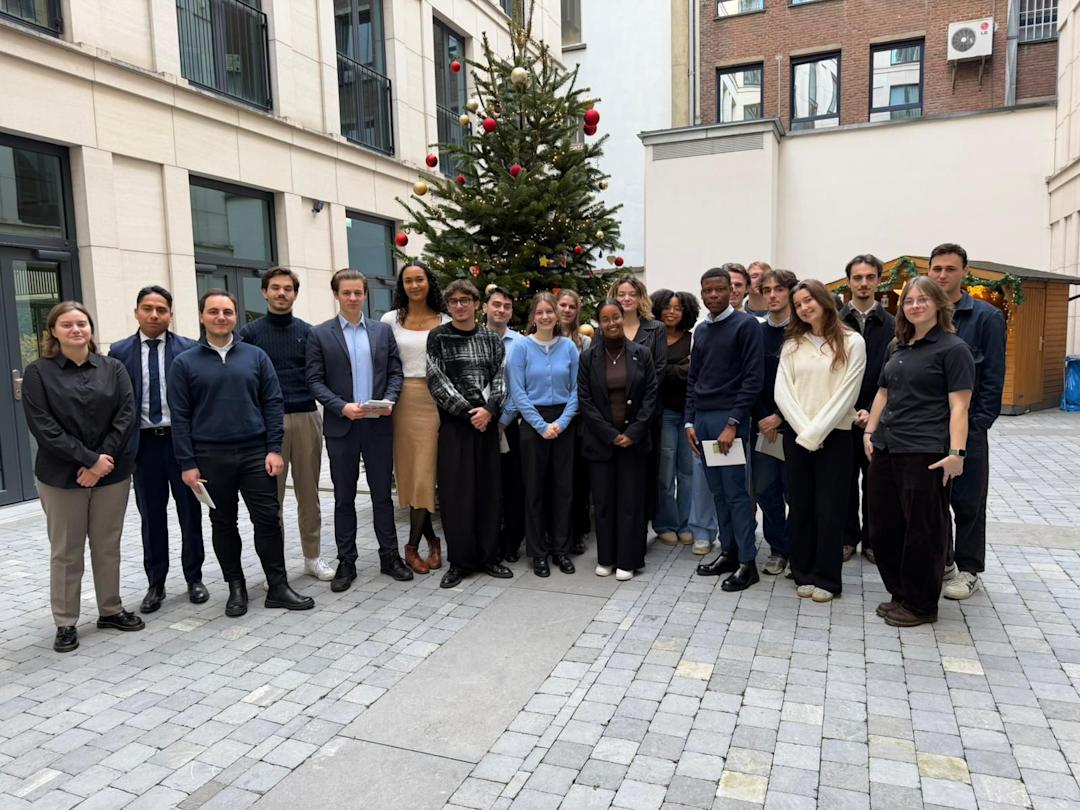Study Week Day 2 : Belgian Politics

On the second day of our Study Week, we focused on Belgian politics and its institutions. We began at the Palais de la Nation on Brussels’s Place des Palais, where a guide showed us the history and functions of both the Senate and the Federal Parliament. We visited each hemicycle and the rooms that connect the two chambers.
The Senate and The Chamber of Representatives
At the federal level, Belgium has a bicameral system: the Chamber of Representatives, elected by direct vote and holding most of the legislative power, and the Senate, composed of community senators and a few co‑opted members whose role is mainly consultative and represents the country’s linguistic communities.
Originally in the 19th century, both chambers were dominated by wealthy landowners, senior officials, magistrates and industrialists under a property‑based voting system. Universal suffrage was introduced in 1921, opening membership to teachers, working‑class lawyers and union activists. Then , the 1948 constitutional reform finally granted women the right to vote and stand for election in both the Chamber of Representatives and the Senate.
We first toured the Senate, learning about its daily work, then moved to the Chamber of Representatives. From the public gallery, we observed a parliamentary question time with MPs questioning Health Minister Frank Vandenbroucke.
Our Meeting with Sir Benoît Piedboeuf
After that, we entered the reading room with its walls lined with portraits of all the past presidents of the Chamber . It was here that Sir Benoît Piedboeuf, MR group leader in the Chamber of Representatives, joined us for a half‑hour Q&A despite his busy schedule .
He started by tracing his own journey from local councillor in Tintigny to chef de groupe in Brussels, explaining how he balances municipal duties with the hectic pace of federal politics. Moreover ,he walked us through a typical workday: morning strategy meeting with his parliamentary advisers, coordination calls with party ministers, then the group’s private briefing before heading into the hemicycle.
He also spoke with the students about the current governing majority, pension reforms, and other pressing issues in Belgian politics. Most memorably, he offered to us insider anecdotes about life behind the scenes in Parliament.
Overall, the visit gave us a clear view of how Belgian deputies and senators work and offered our students a valuable introduction to the country’s political processes.

